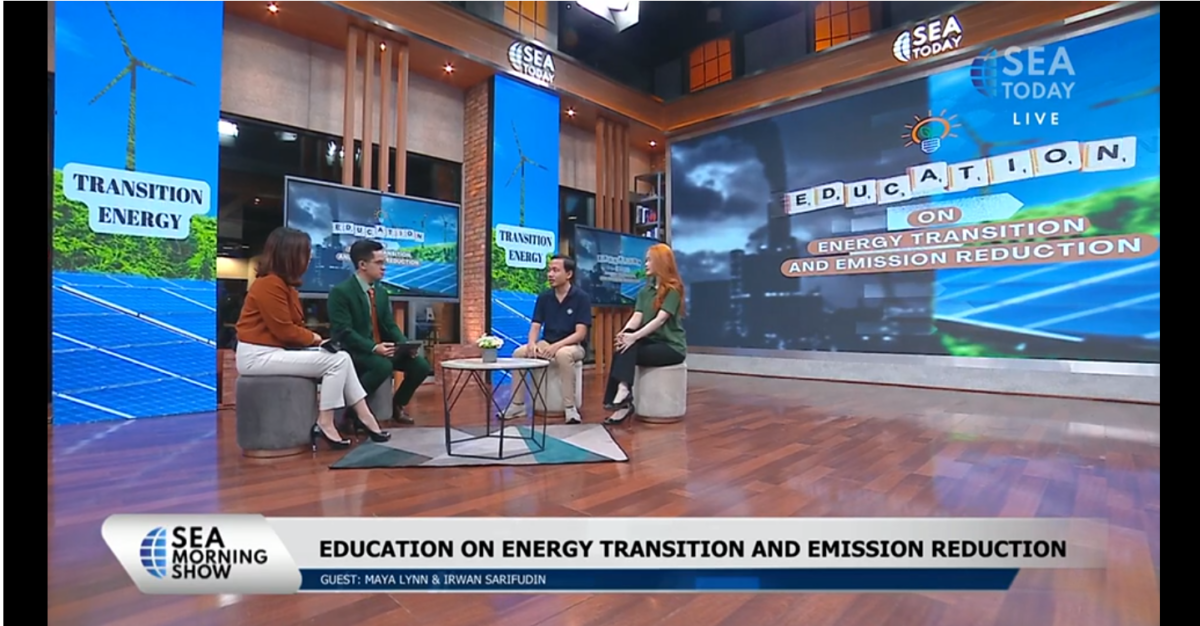Jakarta, 22 April 2024 – Energy transition has gained traction and momentum in the past years. Countries have pledged to reduce emissions as well as accelerate their energy transition agenda to keep the global temperature rise on the 1.5-degree Celsius level. Indonesia pledged to achieve net zero emissions status in 2060 or earlier. This commitment is 10 years later than the Paris Agreement target in 2050.
Irwan Sarifudin, Coordinator for Clean Energy Hub IESR, during the SEA Morning Show on 22 April 2024, said that the IESR’s study Deep Decarbonization shows that Indonesia technically can achieve zero emissions in the energy sector in 2050.
“This choice (to be NZE in 2050) is technically possible and economically viable for Indonesia,” Irwan said.
Irwan also explained that to push the government agenda in accelerating energy transition targets, multi-sector collaboration is essential. One of the initiatives launched by IESR is Generasi Energi Bersih (Gen-B), a youth community focused on personal emissions reduction.
Maya Lynn, GEN-B Coordinator explained that the community encourages each individual to contribute to emission reduction efforts. Gen-B utilizes tools such as jejakkarbonku.id to calculate individual carbon footprints.
“Jejakkarbonku.id has already been customized to suit the Indonesian context, so the transportation options and food choices are developed according to the Indonesian habit and custom,” she said.
To further engage more people, the GEN-B community will keep encouraging the community members and will also be involved in the Community Funded Offset Project (CFOP) which is a carbon offsetting activity by providing renewable energy installation or mangrove planting. The CFOP itself is planned to be in several locations in Indonesia.

